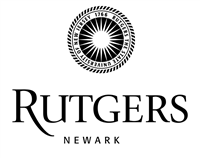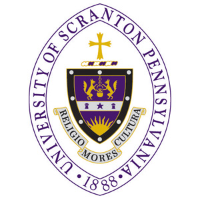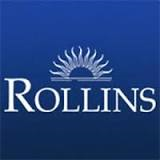What do they do?
Conduct programs of compensation and benefits and job analysis for employer. May specialize in specific areas, such as position classification and pension programs.
Also known as:
Benefits Administrator, Benefits Analyst, Benefits Specialist, Compensation Analyst, Compensation Consultant, Compensation Coordinator, Compensation Specialist, Employee Benefits Specialist, Personnel Specialist, Position Classification Specialist
-
9.2%
Change
Ranks #36 in job growth rate290Job Openings
Ranks #13 in net job growth
-
University of Scranton
Scranton, PA
-
Rollins College
Winter Park, FL
-
Saint Ambrose University
Davenport, IA
-
Jacksonville University
Jacksonville, FL
-
Liberty University
Lynchburg, VA
Looking for colleges that offer a specific major? Use the College Match Tool to find your best-matched schools and discover your estimated Net Price!
- Doctorate or Professional Degree (2%)
- Master's degree (13%)
- Bachelor's degree (41%)
- Associate's degree (12%)
- Some college, no degree (19%)
- High school diploma equivalent (13%)
- Less than high school diploma (1%)
Most Popular Majors that prepare Compensation, Benefits, and Job Analysis Specialists
-
#1
-
Degrees Granted
1,944
-
Female Students
878
-
Male Students
1,066
-
Median Starting Salary
$39,500
-
-
#2
-
Degrees Granted
28
-
Female Students
7
-
Male Students
21
-
Median Starting Salary
$39,100
-
-
#3
-
Degrees Granted
28
-
Female Students
24
-
Male Students
4
-
Median Starting Salary
$40,400
-
People in this career often have these skills:
- Reading Comprehension - Understanding written sentences and paragraphs in work-related documents.
- Critical Thinking - Using logic and reasoning to identify the strengths and weaknesses of alternative solutions, conclusions, or approaches to problems.
- Active Listening - Giving full attention to what other people are saying, taking time to understand the points being made, asking questions as appropriate, and not interrupting at inappropriate times.
- Speaking - Talking to others to convey information effectively.
- Writing - Communicating effectively in writing as appropriate for the needs of the audience.
- Active Learning - Understanding the implications of new information for both current and future problem-solving and decision-making.
- Complex Problem Solving - Identifying complex problems and reviewing related information to develop and evaluate options and implement solutions.
- Judgment and Decision Making - Considering the relative costs and benefits of potential actions to choose the most appropriate one.
People in this career often know a lot about:
- Personnel and Human Resources - Knowledge of principles and procedures for personnel recruitment, selection, training, compensation and benefits, labor relations and negotiation, and personnel information systems.
- Administration and Management - Knowledge of business and management principles involved in strategic planning, resource allocation, human resources modeling, leadership technique, production methods, and coordination of people and resources.
- English Language - Knowledge of the structure and content of the English language including the meaning and spelling of words, rules of composition, and grammar.
- Mathematics - Knowledge of arithmetic, algebra, geometry, calculus, statistics, and their applications.
- Customer and Personal Service - Knowledge of principles and processes for providing customer and personal services. This includes customer needs assessment, meeting quality standards for services, and evaluation of customer satisfaction.
- Law and Government - Knowledge of laws, legal codes, court procedures, precedents, government regulations, executive orders, agency rules, and the democratic political process.
- Economics and Accounting - Knowledge of economic and accounting principles and practices, the financial markets, banking, and the analysis and reporting of financial data.
People in this career often have talent in:
- Oral Expression - The ability to communicate information and ideas in speaking so others will understand.
- Oral Comprehension - The ability to listen to and understand information and ideas presented through spoken words and sentences.
- Written Comprehension - The ability to read and understand information and ideas presented in writing.
- Deductive Reasoning - The ability to apply general rules to specific problems to produce answers that make sense.
- Speech Clarity - The ability to speak clearly so others can understand you.
- Problem Sensitivity - The ability to tell when something is wrong or is likely to go wrong. It does not involve solving the problem, only recognizing that there is a problem.
- Inductive Reasoning - The ability to combine pieces of information to form general rules or conclusions (includes finding a relationship among seemingly unrelated events).
- Speech Recognition - The ability to identify and understand the speech of another person.
People in this career often do these activities:
- Analyze jobs using observation, survey, or interview techniques.
- Monitor organizational compliance with regulations.
- Advise others on human resources topics.
- Oversee business processes.
- Analyze business or financial data.
- Prepare operational reports.
- Establish business management methods.
- Evaluate effectiveness of personnel policies or practices.
- Arrange collective bargaining agreements.
- Communicate with government agencies.
- Verify application data to determine program eligibility.
- Conduct surveys in organizations.
- Maintain personnel records.
- Inform individuals or organizations of status or findings.
- Train personnel in organizational or compliance procedures.
- Prepare research reports.
- Market products, services, or events.
This page includes data from:

 Occupation statistics: USDOL U.S. Bureau of Labor Statistics Occupational Employment Statistics
Occupation statistics: USDOL U.S. Bureau of Labor Statistics Occupational Employment Statistics
 Videos: CareerOneStop, USDOL/ETA and the Minnesota Department of Employment & Economic Development
Videos: CareerOneStop, USDOL/ETA and the Minnesota Department of Employment & Economic Development









